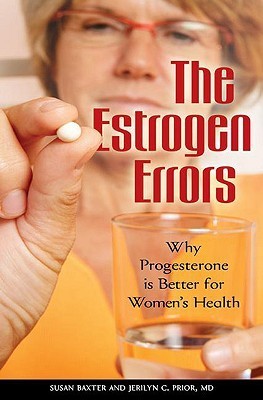"Much of what is written for women, unfortunately, is biased, unscientific, or motivated by profit." (P. 202) The authors of this book try to correct these failures by offering women a scientific and clinically-based assessment of what is currently known about perimenopause, menopause, women's hormones and treatment options.
I was impressed with the critical eye and scientific thinking taken to the subject, as well as the historical perspective to show how the medical establishment got their recommendations so wrong, and how many doctors continue to defend therapies that have harmed women. I was horrified to learn that so much of the treatment for women is based on past assumptions rather than current research. And that what research gets funded can be based on assumption rather than questioning what we think we know, which should be the basis of scientific inquiry.
Important take-always: estrogen as a treatment for difficulties with anything having to do with the reproductive system is not the panacea that it is made out to be by many gynaecologists. While standard treatment, it is not as good an option as progesterone therapy, and this book explains why.
This book is for women who like to learn and think for themselves. It is not for women who just like to do whatever their doctors tell them, because their doctors are likely to be doing what they learned in med school, which is based on incorrect assumptions and clever marketing by drug companies among other things.
It's not a light read by any means, but I would recommend it for any women approaching midlife to be armed with good information.

